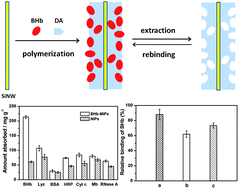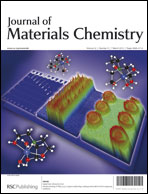Molecularly imprinted polymer-coated silicon nanowires for protein specific recognition and fast separation†
Abstract
Nanomaterials have offered an opportunity for molecular imprinting to extract templates easily and achieve large binding capacity. In this paper, silicon


 Please wait while we load your content...
Please wait while we load your content...